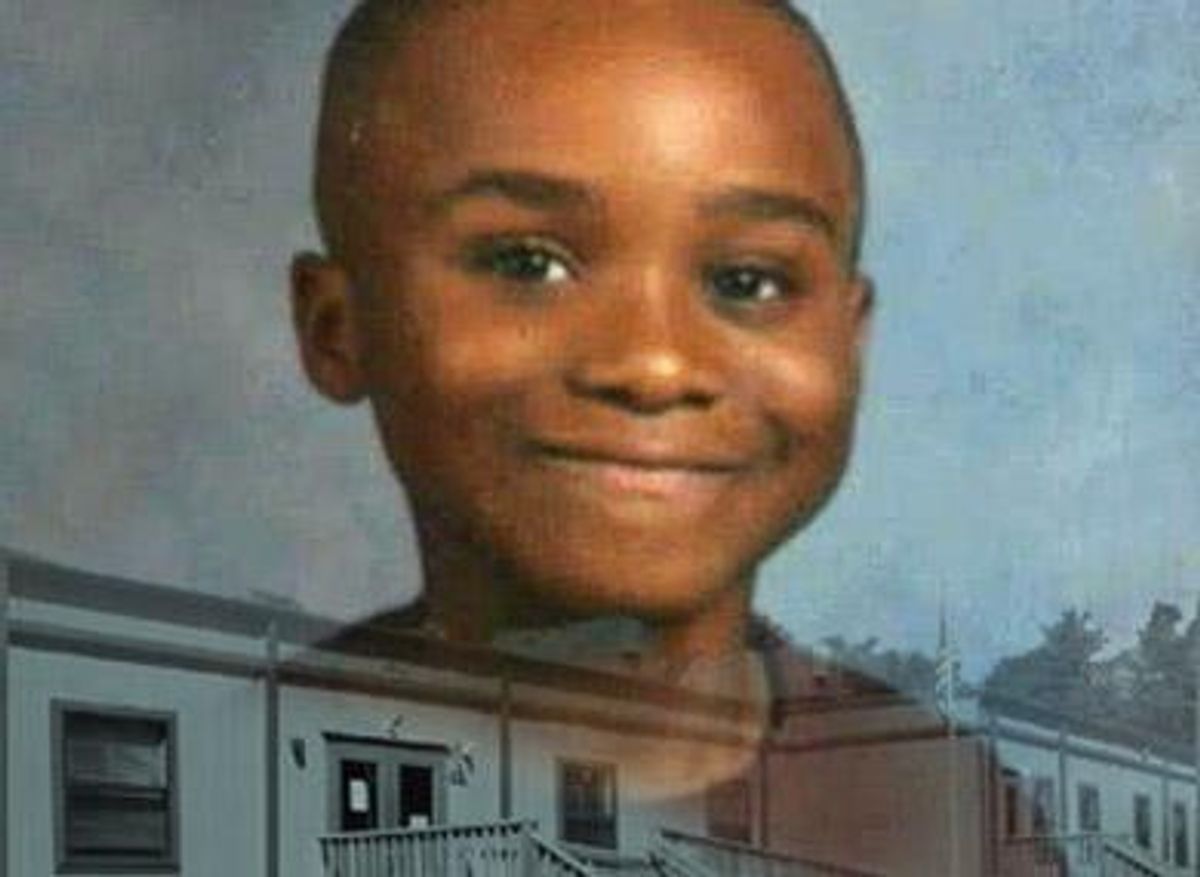Sirdeaner Walker, who
has survived domestic violence, homelessness, and
breast cancer, knew death could come suddenly -- but
she could not have predicted it would find her 11-year-old son
first.
Carl Joseph
Walker-Hoover was a sixth-grader at New Leadership Charter
School in Springfield, Mass. There, many of his classmates were
initially strangers, as few of his friends from Alfred Glickman
Elementary followed him.
On April 6, Sirdeaner
Walker came home, walked up the stairs to the second floor of
her home, and saw her son suspended from a support beam in the
stairwell, swaying slightly in the air, an extension cord
wrapped around his neck, according to police. He apologized in
a suicide note, told his mother that he loved her, and
left his video games to his brother.
Walker said her son had
been the victim of bullying since the beginning of the school
year, and that she had been calling the school since September,
complaining that her son was mercilessly teased. He played
football, baseball, and was a boy scout, but a group of
classmates called him gay and teased him about the way he
dressed. They ridiculed him for going to church with his mother
and for volunteering locally.
"It's not just
a gay issue," Walker said. "It's bigger. He was 11
years old, and he wasn't aware of his sexuality. These
homophobic people attach derogatory terms to a child who's 11
years old, who goes to church, school, and the library, and he
becomes confused. He thinks,
Maybe I'm like this. Maybe I'm not. What do I
do?
"
His birthday, April 17,
falls this year on the 13th National Day of Silence, a day on
which individuals observe vows of silence for students
bullied at school.
But instead of silence,
Walker wants action from the school, which she said
continuously ignored her, chalking the situation up to student
immaturity. She said that every day her son left for school, he
walked into a "combat zone" assigned to him because
of his inner-city address. But he would not point a finger at
specific classmates for fear he'd be called a
"snitch."
Walker said that she is
angry with teachers and administrators for not taking action,
and she called on the state of Massachusetts last week to probe
the school, hoping she might prevent other children from
feeling as her son did.
"A lot of parents
don't know the avenues open to them. A lot of parents
don't know where to turn," Walker told
The
[Springfield]
Republican
.
In the days
following Walker-Hoover's death, parents and community
members have grown increasingly critical of the school system's
approach to bullies and peer abuse, further fueled by
administrators refusing to comment to local media.
Hilda Clarice Graham,
an expert on bullies and a school safety consultant with
International Training Associates, said students often use
assumed sexual orientation as a main weapon against one
another. "It's the hammer that hurts the most and is the
most vulnerable and hurtful thing going," she said.
Nearly half of children
between the ages of 9 and 13 have been bullied, and nearly 10%
of those students say it happens on a daily basis, according to
a study by the U.S. Department of Health and Human Services. In
a 2007 Gay, Lesbian, and Straight Education Network study, 86%
of LGBT students said that they had experienced harassment at
school during the previous year.
Days prior to Carl
Walker-Hoover's suicide, he confronted a female bully who
verbally accosted him. The event served as an apparent catalyst
to Walker's suicide. The school's response was to have the two
students sit beside one another during lunch for the
next week to encourage conversation.
Graham says the
school's response is not ideal because "for
mediation to work, there must be equal power." She said
bullies' goals are to hurt, and to depend on them to feel
remorseful is not an effectual way to deal with them -- that
victims are at a disadvantage when trying to make peace
alone.
Graham added that
schools should handle bullying on a small scale to avoid
large-scale responses to tragic events.
"It's the most
dramatic call to action a school can receive," she said.
"Parents want a guarantee that this will never happen
again."
Many residents came out
in support of the Walker family in a school-sponsored vigil
last Thursday night. Walker says school officials didn't
invite her to the event. She said she heard from others but
chose not to attend.
School superintendent
Alan J. Ingram said on Thursday that cases of bullying must be
addressed quickly and fairly, but added that many of the
state's charter schools are autonomous and have their own
policies. He said 11 of the system's schools have
bullying-prevention programs, but most operate in elementary
schools.
Peter J. Daboul, the
newly elected chairman of the school's board of directors, said
the board will have an emergency meeting to review the
circumstances surrounding Walker-Hoover's suicide. He said
the school follows the Springfield Public School
System's protocols for dealing with bullies.
For now, Walker says
she worries about her son's best friend, a heavy girl with whom
Walker-Hoover would have lunch. Walker said the
girl is still teased for her weight.
"By whatever means
[are] necessary, I'm going to get the message across that
the taunting has to end in the schools," she said.


















































































